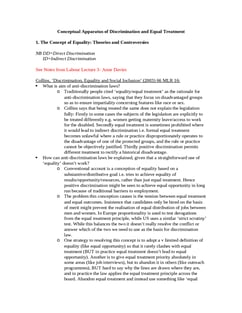Gunton v Richmond LBC [1980] ICR 755
Judgement for the case Gunton v Richmond LBC
Table Of Contents
Plaintiff was sacked for misconduct but Defendant failed to follow the disciplinary procedure set out in the contract.
CA held that Plaintiff could not lawfully be sacked in accordance with the contract until the disciplinary procedure was followed, so that Defendant had simply repudiated the contract.
Repudiation alone did not automatically terminate the contract’s existence unless Plaintiff accepted it (Shaw LJ dissenting on this point) but that (per Buckley LJ) Plaintiff had accepted the repudiation at the trial, even if not before.
Therefore the contract had been terminated, Plaintiff was only entitled to damages by the amount of wages payable for the period from his (unlawful) dismissal until the expiry of the contractual notice period (i.e. one month’s wages, here).
Buckley LJ (majority reasoning)
Where a servant is wrongfully dismissed, he is entitled, subject to mitigation, to damages equivalent to the wages he would have earned under the contract from the date of dismissal to the end of the contract.
The date when the contract would have come to an end, however, must be ascertained on the assumption that the employer would have exercised any power he may have had to bring the contract to an end in the way most beneficial to himself; that is to say, that he would have determined the contract at the earliest date at which he could properly do so.
The damages are for being excluded from service for the month when he was entitled to serve out his notice period.
-
Although he endorses the elective view of termination, the fact that in an employment contract it is very unlikely that a master will take back a servant he has wrongfully dismissed, and that a servant must mitigate when he has been wrongfully dismissed (and it is very hard to mitigate, i.e. by finding another job, in a way that seriously allows for the possibility of coming back to work for the original master), the court will be willing to infer acceptance, e.g. by Plaintiff finding a new job.
However he doesn’t explain why he infers Plaintiff’s acceptance at trial stage here.
Shaw LJ
Dissenting as to reasoning, but not result
Repudiation automatically terminates the contract. See summary in the Ewing article.
RELATED CASES
For Further Study on Gunton v Richmond LBC
Need instant answers? Our AI exam tutor is here to help.
Ask questions 🙋 Get answers 📔 It's simple 👁️👄👁️
Our AI is educated by the highest scoring students across all subjects and schools. Join hundreds of your peers today.
Get StartedSimilar Cases
Related Product Samples
These product samples contain the same concepts we cover in this case.
| Labour Law | Job Security Notes (15 pages) |
| Labour Law | Wrongful Dismissal Notes (39 pages) |
| Labour Law | Wrongful Dismissal Notes (26 pages) |

 Since 2010, Oxbridge Notes has been a trusted education marketplace, supplying high-quality materials from top achievers at universities like Oxford, Cambridge, LSE, Harvard, and Yale.
Since 2010, Oxbridge Notes has been a trusted education marketplace, supplying high-quality materials from top achievers at universities like Oxford, Cambridge, LSE, Harvard, and Yale.